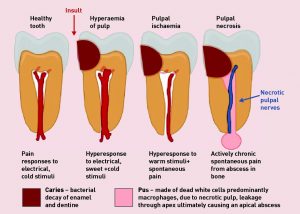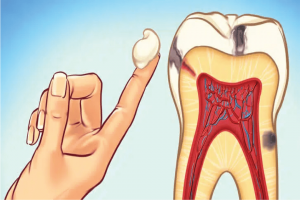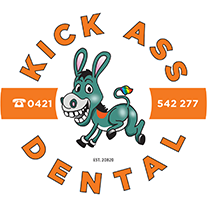Is Tooth Nerve Pain Serious? – Exploring Causes, Symptoms, and Treatment
Introduction
Tooth nerve pain, also known as dental pulpitis or toothache, can be a distressing experience that affects millions of people worldwide. While toothaches are a common occurrence, it is crucial to understand the severity of tooth nerve pain and seek appropriate dental care to alleviate the discomfort. This article aims to explore the causes, symptoms, and treatment options associated with tooth nerve pain.
What Causes Tooth Nerve Pain?
There are several potential causes of tooth nerve pain:
Dental Decay
One of the leading causes of tooth nerve pain is dental decay, commonly known as cavities. When plaque and bacteria accumulate on the tooth’s surface, they produce acids that erode the protective enamel, leading to decay. As the decay progresses and reaches the inner layers of the tooth, it can irritate and inflame the dental pulp, resulting in severe nerve pain.
Dental Infections
Infections, such as abscesses or periapical infections, can occur when bacteria penetrate deep into the tooth, reaching the dental pulp. These infections can cause significant inflammation and result in intense tooth nerve pain. Prompt treatment is essential to prevent the spread of infection to surrounding tissues.

Cracked or Fractured Teeth
A cracked or fractured tooth can expose the dental pulp to external irritants, including bacteria and temperature changes. This exposure can lead to nerve pain as the pulp becomes inflamed or infected. It is crucial to seek dental attention when a cracked or fractured tooth is suspected to prevent further complications.
Symptoms of Tooth Nerve Pain
Identifying the symptoms of tooth nerve pain can help determine the seriousness of the condition:
Sharp or Throbbing Pain
Tooth nerve pain often manifests as a sharp, shooting, or throbbing pain. The intensity of the pain can vary from mild discomfort to excruciating agony, making it difficult to carry out daily activities.
Sensitivity to Temperature and Pressure
A common symptom of tooth nerve pain is increased sensitivity to hot or cold foods and beverages. Additionally, biting or applying pressure on the affected tooth may worsen the pain, indicating potential nerve involvement.
Swelling and Discoloration
In cases of dental infections or abscesses, swelling and discoloration of the affected area may occur. This swelling can be accompanied by tenderness or a pimple-like bump on the gum near the painful tooth.
Treatment Options
When experiencing tooth nerve pain, it is important to consult a dentist for an accurate diagnosis and appropriate treatment. The following treatment options are commonly used:

Dental Fillings or Restorations
If dental decay is the cause of the nerve pain, your dentist may recommend removing the decayed portion of the tooth and filling the cavity with a dental filling material. This helps alleviate pain and restores the tooth’s structure and function. For kick ass dental croydon park read here.
Root Canal Therapy
When the dental pulp becomes infected or severely inflamed, a root canal procedure may be necessary. This involves removing the infected pulp, cleaning and disinfecting the root canal, and sealing it with a dental material. Root canal therapy can save the tooth from extraction and provide relief from nerve pain.
Extraction
In cases where the tooth is severely damaged, decayed beyond repair, or poses a risk to oral health, extraction may be the recommended treatment option. Tooth extraction eliminates the source of the nerve pain and prevents further complications.
Conclusion
Tooth nerve pain can significantly impact one’s quality of life, and it is important not to ignore its seriousness. Understanding the causes, recognizing the symptoms, and seeking appropriate dental treatment can help alleviate the pain and prevent potential complications. If you are experiencing tooth nerve pain, consult with a dental professional to determine the best course of action and regain your oral health.





